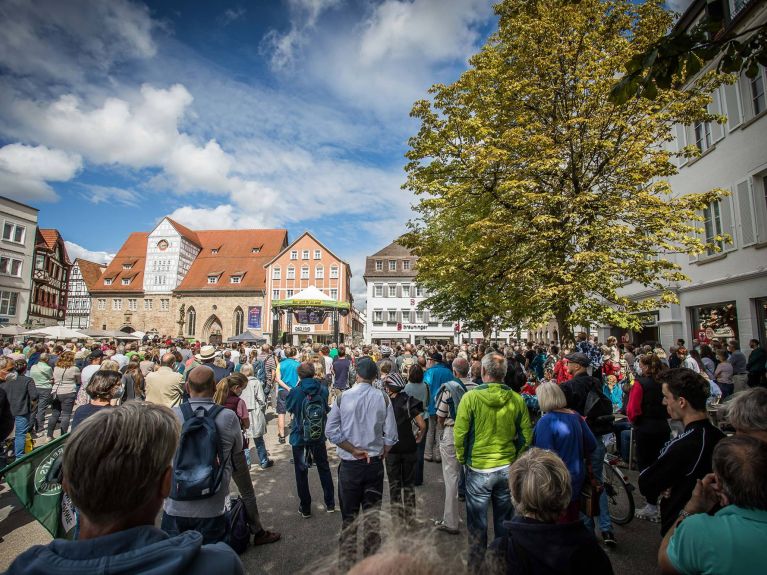Campaigning in the Covid pandemic
Germany is electing a new parliament which will decide who succeeds Angela Merkel.

Who will become chancellor after Angela Merkel? A new Bundestag will be elected on 26 September 2021. As soon as a government coalition has been formed with a majority, parliament will then decide who is to be Ms Merkel’s successor. But before that, the election campaign continues. Admittedly, it is very different from other years. In the midst of the Covid-19 pandemic this is hardly surprising. There are no fundamental differences concerning the approaches to combatting Covid-19. And the few extreme positions are represented within small parties. But this election campaign is also entirely different, because so far there has always been a chancellor defending his or her position in office.
Environmental topics dominate the discussion
So far the environment and climate concerns have been the main topics in the current campagn. The major parties are in general agreement about Germany’s targets to reduce greenhouse gases and reach climate neutrality. But they are in disagreement over the actual time schedule and the roadmap. Whereas the Greens want to achieve all of the targets more quickly and are suggesting a kind of climate veto for all government decisions, other parties, such as the CDU/CSU, are issuing warnings about threats to economic stability by moving too fast. They are sticking to the 2045 goal for climate neutrality. The SPD is also basing its ideas on the climate protection law which it passed together with the CDU/CSU in June 2021.
The second main topic is tax policy and public debt. The question here is how far the statutory limits should be exceeded in order to invest more funds in climate policy and support the economy by cushioning the effects of the pandemic.
All of the parties agree on the lesson learned from the school closures during the Covid-19 pandemic: digitalization in schools must be increased. But in this case there is disagreement about how this should be financed, since education policy in Germany is the responsibility of each individual federal state.
In the area of labour and social policies the three major parties agree about helping low-income earners. The CDU/CSU want to increase the tax-exempt level of income for so-called mini-jobs from 450 to 550 euros per month. The SPD as well as the Greens are calling for a minimum wage of 12 euros instead of the current 9.60 euros per hour.
The major parties are in broad agreement on foreign policy. Although they have different areas of emphasis, they nevertheless all take a multilateral approach with a continued strengthening of the European Union.
Core voters constantly decreasing
Germany traditionally has large numbers of loyal ‘core voters’ who feel strongly attached to a particular party and its basic political orientation. But their numbers are constantly decreasing and in most parties they have fallen to less than one third of their voters. Because of the current major impact of environmental issues, the Greens now have the greatest potential to take votes from the other parties. Consequently, the other parties view them as the most important opponent. Nevertheless, there is hardly a prospect of fundamental political changes. Maybe this is why the three major parties CDU/CSU, SPD and the Greens are so close together in the surveys that the usual fault tolerance shifts can cause complete changes in the running order.
Wahl-O-Mat helps undecided voters
Cool-headed people who want to base their votes solely on the election programmes can get help from 2 September onwards. That’s when the traditional Wahl-O-Mat provided by the Federal Agency for Civic Education goes online. The service (in German) offers answers to questions from all areas of politics based on the actual party programmes. At the end of the session the Wahl-O-Mat shows the user to what extent their opinions agree with which party or parties. All without the hustle and bustle of the election campaign.
You would like to receive regular information about Germany? Subscribe here:



